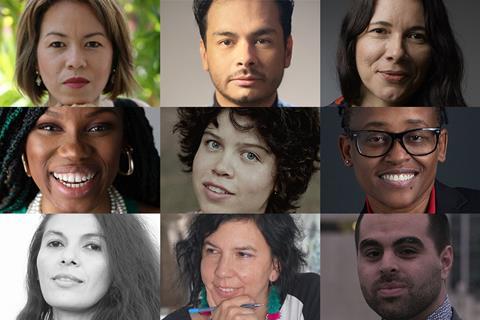The participants of Open Doors’ Producers Lab will be encouraged to focus on strengthening collective work practices and moves towards a more sustainable industry.

This year’s Open Doors Producers Lab participants hail from Bolivia, Costa Rica, Cuba, Haiti, Honduras, Nicaragua, Peru and, for the first time, Guyana and Paraguay.
The programme focuses on the role of the creative producer and how to interact with the international industry, offering group discussions, workshops, individual consultancy meetings and networking opportunities.
The 2024 cohort includes Wendy Desert from Haiti, a founding member of the all-female collective l’Autre Regard Films Productions; Bolivia’s Camila Molina, a producer of Diego Mondaca’s International Film Festival Rotterdam entry Chaco (2020); and Romola Lucas, the first producer representing Guyana.
Additionally, Open Doors will welcome junior producer Andrea Fatecha Bernal from Paraguay as an observer, her participation made possible via an Open Doors’ collaboration with Cuba’s International School for Film and Television.
Forging alliances
Molina says film production in Bolivia faces challenges because of the economic crisis and the absence of a film law. Taking part in the Producers Lab “will lead to collaborations and alliances that are essential for both my personal growth [and] projects I aim to undertake, benefiting not only me but also my region,” she says. She brings Bolivian filmmaker Alvaro Manzano’s 99 Secrets.
Guyana’s Lucas and her Maribunta Pictures arrive with Timmia Hearn DeRoy’s project Chris & The Disciples. As in many other places across Latin America and the Caribbean, there is no state funding for the arts in general and film specifically in Guyana. “There [are no] film training programmes or schools, so finding skilled actors or crew with production experience is difficult,” notes Lucas. “There is a history of feature films made in and about Guyana by Guyanese, but media content today is mostly American. So another challenge is a lack of demand for local content, which we are counteracting by raising awareness of, producing and creating spaces for locally produced films and other media content.”
Nicaraguan producer Morena Guadalupe Espinoza and company Tecla Films bring feature Ariel to Locarno; she is also aiming to talk to collaborators on other projects.
The development of filmmaking in Nicaragua has been hindered by cycles of political, economic and social instability. “And there is the lack of local film funds and tax incentives for artistic creation in general,” Espinoza says. “Being selected for the Lab is confirmation that I must keep going, keep my determination, passion and belief in the powerful stories we can create.”
Haiti’s Desert brings fellow Haitian director Sephora Monteau’s documentary No, I Haven’t Found El Dorado, a personal odyssey about confronting potential exile. Producing in Haiti is tough, without a national film commission or any system of private or public funding. “Filmmakers turn to international funds where we are eligible,” says Desert. “But the crucial need remains for the creation of a reliable local source of funding.”
For Costa Rica’s Patricia Velásquez, participating in Locarno with her company Tiempo Líquido, this is an opportunity to develop relationships with co-producers and the international market that she would be unlikely to have in Central America. Velásquez brings Tiempo Líquido partner and filmmaker Oscar Gonzalez’s fiction feature Pest That Surrounds You. The pair are looking for co-production partners. Producing films from Costa Rica can be an uphill task, with no bilateral co-production agreements between countries in the region and the rest of the world.
Nicolás Carrasco and his Peru-based Walden Films arrives with Yaela Gottlieb’s documentary project I Salute You, Peru. Carrasco hopes to meet producers from other regions outside Latin America, such as Europe or Asia. “I want to learn other ways to obtain financing for cinema outside of the Peruvian Film Board grants, since [funding is] in constant danger of being eliminated by right-wing politicians in Peru,” says Carrasco.
Honduran creative producer Luis Flores Alvarenga arrives with Enrique Medrano’s fiction project Lost Children(Los Niños Perdidos), which participated in Open Doors’ script consultancy in 2023. Alvarenga aims to showcase the rich cultural heritage of Honduras and its Indigenous communities.
Rounding out the cohort is Cuba’s Yamila Marrero and her Crisálida Productions, bringing to the Lab photographer Deymi D’Atri’s documentary Lifetime, about living in Cuba. D’Atri’s cinematography credits include several short and medium-length fiction films, documentaries and Pedro Ruiz’s The Eighth Floor (El Octavo Piso).























No comments yet